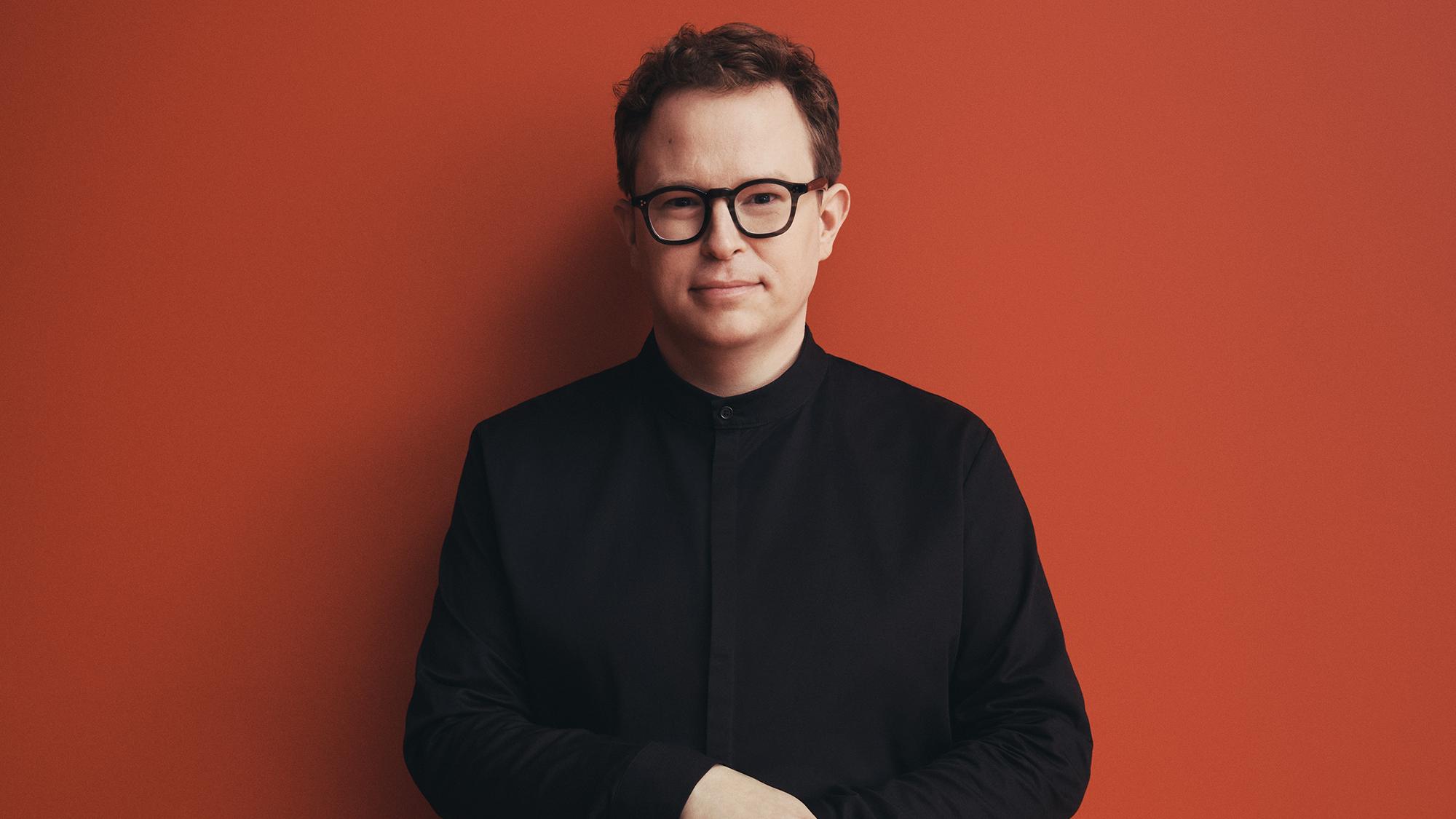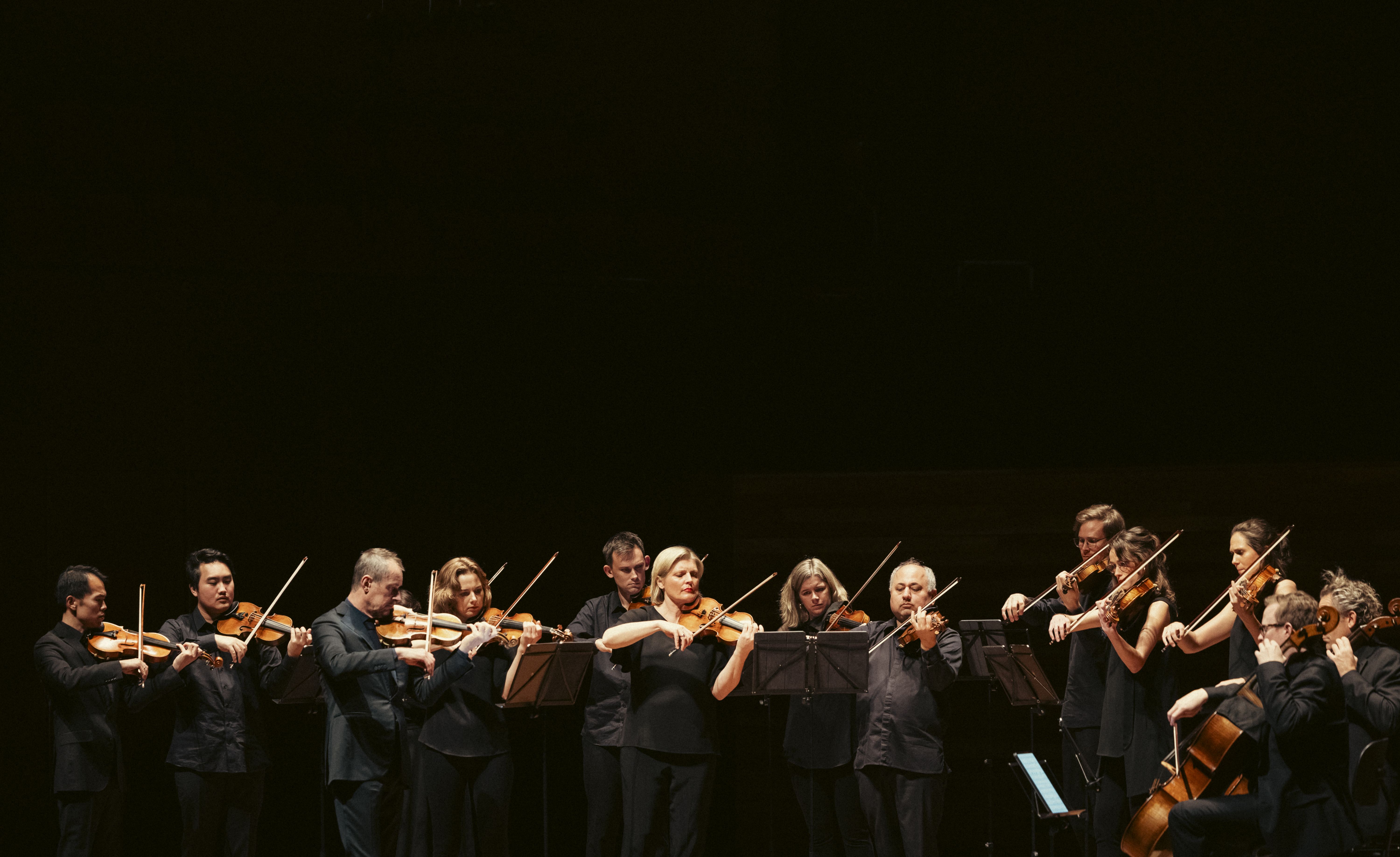
By Anna Snoekstra
Recorder virtuoso Genevieve Lacey loves to watch children pick their first musical instrument. Decades ago, while working at a primary school, she’d observe kindergarten students making their choice. “The child never got it wrong,” she tells me, when we meet on a rainy Melbourne day. “They knew what felt good, and they knew which sounds they were tuned to.” Lacey believes there is a certain pull between an instrument and someone’s personality, no matter their age.
“I guess my instrument and the sort of musical material that I’m drawn to fits well with this idea, because the recorder is gentle, it’s a chameleon, it’s a traveller,” she says. “It passes through many different landscapes with quite a light touch.” Lacey felt an immediate connection to the recorder as a child. Later, through various phases of her education, she felt pressure to take up other instruments but ultimately returned to the recorder, moving with it to study at Schola Cantorum Basiliensis, a music academy in Switzerland, and then onto the Carl Nielsen Academy of Music, in Denmark.
Lacey joins the Australian Chamber Orchestra for A Musical Awakening, a program which aims to showcase music’s ability to nurture and nourish through pieces by Max Richter, David Lang, Ludwig van Beethoven, Hildegard von Bingen and Melody Eötvös, among others. The program is directed by principal cellist Timo-Veikko Valve, known to his friends and colleagues as “Tipi”. I speak to him from his Sydney home in the midst of his renovations.
Valve began playing the cello when he was six, when his teacher at the local music school declared that “he looks just like a cellist!”, which turned out to be correct. “I guess you can say I chose the cello by sticking with it. By finding my voice in it,” he says. “The connection of the instrument to the player and their personality is ideally strong. After all, we are speaking through our instrument, telling stories through our instrument.”
Valve is Finnish, originally from Helsinki. He was nearing the end of his studies at the Edsberg music institute in Stockholm when he was offered an audition for the ACO. He has now lived in Sydney for 19 years. It’s a climate completely different to his upbringing. “Finland is, for long periods of the year, a Haajavery dark and cold place,” he says. “In those physically harsh conditions, you might want to go to a concert because outside is pitch black at 3pm already, and it’s horribly cold, and you need to gather and distract yourself. Music is often the thing that you might seek out, to delve into and submerge yourself into.”
“They both speak of the chosen pieces as a journey of refreshing the audience’s spirit, coming out of it more energised and in tune with themselves.”
Lacey remembers what it was like to live through the long, dark winters from her time studying in Denmark. “It’s an entirely different relationship to light, to inside space, to how you deal with your own head – it’s a really different way of living, but I love the sort of hibernation of those years. I think that’s very powerful too, for someone who’s sensitive and so clearly artistic, as Tipi is. And again, the cycle of those seasons and sort of enduring them, celebrating them, seeing what they bring out in you. That’s really powerful, too.”
In contrast, Lacey spent her childhood in Papua New Guinea, spending a lot of time practising her instrument outdoors in the heat and attending the cultural sing-sings in the Highlands. “Tipi plays a bass instrument,” Lacey says, “and I play this kind of ethereal instrument. So not only, you know, did he grow up in a country that has such long, cold, dark winters and I grew up in the tropics, but also, he’s holding the kind of deepest, most heartfelt sonorities, which, of course, take the colour and the emotional spectrum towards those things that are grave and difficult, and then my instrument is a bird or a spirit, so we have different functions in this program.”
She believes music is a place of solace, where one can express things that are beyond words. “Really, most of what I’m playing in this program exists a bit more in the ether. We’re trying to have a balance of both ends of that sort of intense human expression and feeling.”
It’s a sentiment that Valve agrees with. He speaks of how emotional it is being inside the music, something that’s always visible to the audience. “All music that we play confronts us with emotions, whether it’s a memory of a place, or something tragic, or something joyful. So that aspect of music making is like we’re our own little psychiatrists, if you like.”
As the director of A Musical Awakening, Valve is deeply in tune with the ideas of nourishment and renewal that the program seeks to conjure up. He hopes to explore the music’s healing power and its societal meaning. “It’s a way to enrich and better yourself, or make you feel better about things in general,” he says. They both speak of the chosen pieces as a journey of refreshing the audience’s spirit, coming out of it more energised and in tune with themselves.
“I guess for a lot of musicians, music is home, it’s the place that we live,” Lacey muses. “I often think of it as an element. It’s something that, to me, is like air or light, you know, and I do feel like I inhabit it. There’s always some part of me that is listening or playing something or responding to the sound around me. And I think most musicians are kind of wired primarily through their ears. That’s how we experience the world. Throughout my life, music has been a source of constant joy, challenge and solace.”
Lacey is excitedly looking forward to this collaboration with the ACO, saying that, in her previous experiences with the Orchestra, she has found the rehearsals remarkable. “It’s a miraculous example of how humans can work together, because there are all these people on stage doing very complex things without words. They’re all responding to one another in the moment. It’s just such a beautiful example of how we can work together when we put our egos aside and we’re focused on something that’s bigger.”
Valve feels similarly. “When we have a really great performance of a piece or a concert, it’s because we emotionally align, if that makes sense. Over the years, the awareness and non-verbal communication between you and your colleagues can become very strong.
“Many things are left unsaid when there is shared understanding. Ideas will start to take shape without necessarily voicing them specifically. In a concert, you might even ideally forget all of that and just let go. Then the performance is based on mutual trust and responsibility.”
“I absolutely love being in a place where everyone’s just listening together. It’s beautiful. You can feel this incredible sense of an open, intangible connection in the room. I guess to me, it feels more and more necessary in the current world, the idea that we stop and we listen.”Genevieve Lacey
Valve is aware of the significant cultural timing of a program that celebrates nurture and connection and it also holds a very personal emotional significance for him.
The fifth piece, Wiima, was composed by Finnish violinist Jaakko Kuusisto, a close personal friend of Valve’s family who died in 2022 at only 48 years old.
Along with that, the final piece, Ludwig Van Beethoven’s Holy Song of Thanksgiving, has a connection to a very close friend of Valve’s who passed away late last year.
This piece is considered one of the most profound pieces of music in Western history. It was written after a difficult year for Beethoven. He had been going through a downward spiral and was arrested by police, who mistook his dishevelled appearance for vagrancy. He then became seriously unwell and feared he would lose his life to his illness. Beethoven did recover and wrote this work in gratitude for his new health. Lacey refers to it as a “holy piece” for string players. She says it “conjures up the essence of music and meaning. It’s an incredibly personal piece for Beethoven and most string players have a really strong relationship with it through some point or some experience in their lives.”
Since his friend’s death, Valve has been struck by how music has consoled and calmed him in his grief as well as helping to resurface memories of their time together. “This spectacular movement by Beethoven I happened to study and perform a lot with my friend who’s passed,” he says. “I’m kind of fearing and also looking forward to going through that kind of emotional process every night. I’m not sure if it’s going to be good or bad, but it’s going to be something at least.”
He knows performing the program 13 times around Australia will be emotionally hard work, and says the performances will be a “kind of group therapy session”. But he hopes the audiences will join them on that emotional journey. He speaks about how the audience is the missing link that either makes or breaks the success of a concert and its ability to have a bigger meaning and effect. He calls the experience of an audience tuning in their energy en masse as “magical”.
Although our conversation takes place in a different state, Lacey uses similar language when discussing the experience of listening to music, calling it “a very potent magic”. She explains the shifting scientific knowledge of how humans’ brains and bodies respond to music.
“It bypasses a lot of our normal thinking patterns and takes us somewhere different, so closely aligned with memory, and genuinely changes the hormones and the neural patterns in our bodies,” she says. “I absolutely love being in a place where everyone’s just listening together. It’s beautiful. You can feel this incredible sense of an open, intangible connection in the room. I guess to me, it feels more and more necessary in the current world, the idea that we stop and we listen.”
Whether it’s through the celestial notes of Lacey’s recorder or the depth and resonance of Valve’s cello, both express the importance of doing their best to rise as musicians to meet the attention of the audience. “There is something that happens in the exchange that really does feel like an alchemy of everyone just being immersed in sound,” says Lacey. “It’s where we don’t have to really have opinions about anything or navigate or negotiate… we can just be. It’s so nuanced, it’s so multi-layered and many-voiced. But there really is so much space in music, and people can meet it in the way that they need on that day.”
She speaks about the process of listening to the concert as being an inward migration. “You are more awake after that. You’re alive to yourself, the people around you, your environment; once you’ve been inside and stilled a whole lot of things then you’re really alert. You’re really present. So, it’s like a process of musical awakening.”
Click here to buy tickets to A Musical Awakening, touring to Newcastle, Melbourne, Adelaide, Perth, Canberra, Brisbane and Sydney. 4 - 21 September 2025.
Anna Snoekstra is the author of six novels that have been translated across the globe. Her novels are works of literary suspense, focussing on everyday women in extraordinary circumstances. Her new book, The Ones We Love, is out now with Ultimo Press. She also writes for The Saturday Paper.
